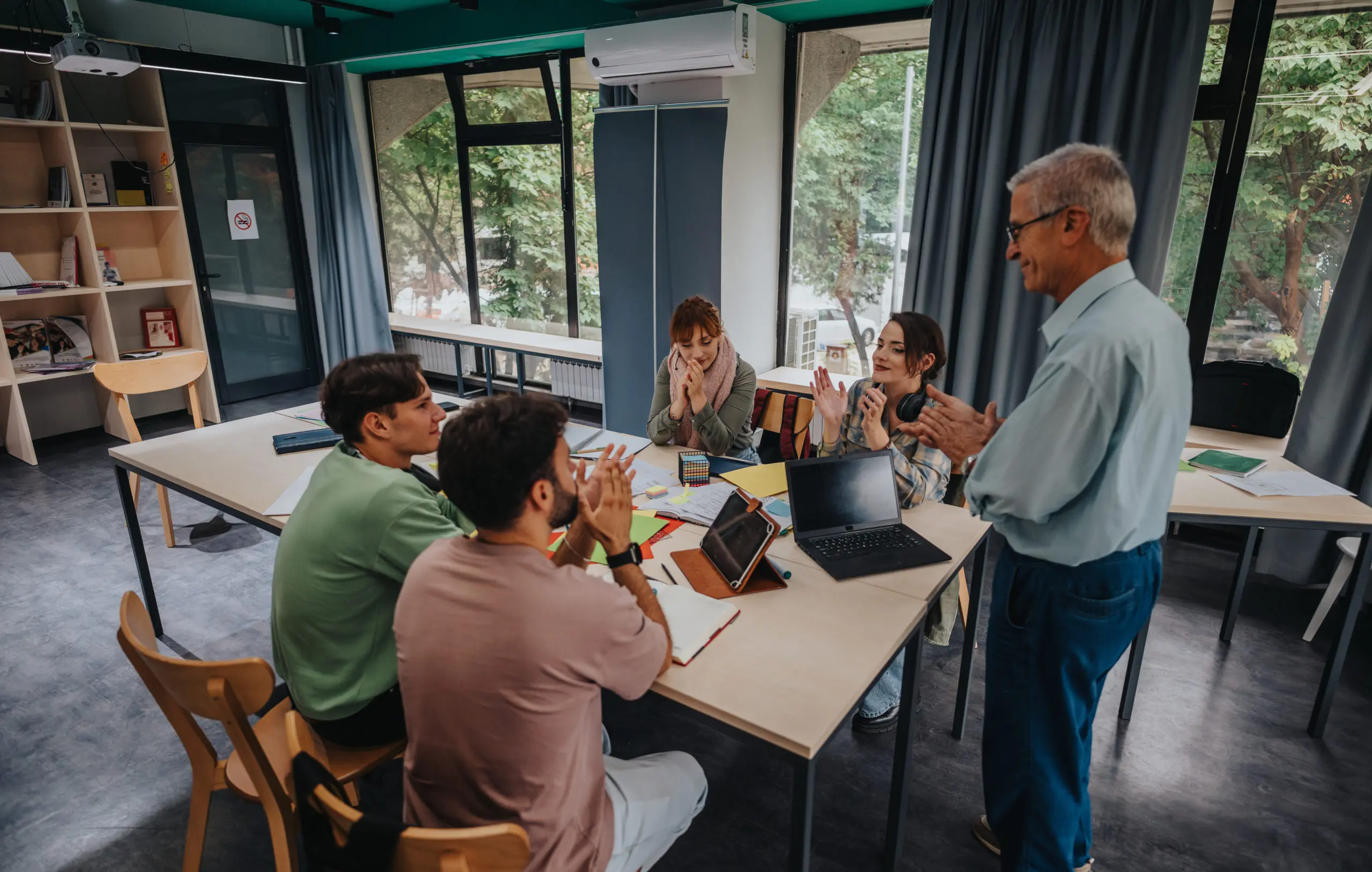
Enerdrape: Renewable energy as a service and CO2 savings-based business model
As part of their Master's degree in Sustainable Management and Technology, students work on a sustainability challenge provided by a company to propose new perspectives or solutions that can have the potential to transform an industry or societal practice.

Thanks to an installation without drilling, Enerdrape panels make it possible to turn underground structures, such as car parking or tunnels, into sources of renewable thermal energy for the heating and cooling of buildings, thus achieving CO2 savings. As of today, Enerdrape follows a conventional B2B model, selling its panels and associated engineering services to energy professionals and building owners. This project explores alternative business models such as EaaS and Carbon Credits to diversify revenues streams, generate recurring revenues, and accelerate the adoption of new technologies on the market.
Enerdrape: Exploring Alternative Business Models for Heating and Cooling Technologies in Switzerland
As the world tries to address climate change, innovative business models like Energy-as-a-Service (EaaS) and Carbon Credit systems are gaining traction. These approaches provide alternative ways to bring new technologies onto the market, promising to align financial viability with environmental goals. While EaaS shifts the traditional ownership paradigm by delivering heating and cooling as a service, thereby reducing upfront costs for consumers and providing recurring revenues for providers, carbon credits offer a potential new revenue stream by monetizing greenhouse gas reductions achieved through innovative heating solutions. However, the feasibility and market potential of these business models in specific contexts remain underexplored.
In partnership with Enerdrape, the project evaluates how EaaS and Carbon Credits could support the adoption and scalability of geothermal panels in Switzerland. Using expert interviews and desk research, the study investigates technical, economic, legal, and operational dimensions of these models. The findings reveal that for EaaS, technical feasibility is high, but low market maturity and consumer adoption barriers necessitate awareness campaigns and competitive pricing strategies. Meanwhile, while Carbon Credits present a promising funding mechanism, regulatory uncertainties—such as Switzerland’s impending CO2Act revision—introduce significant challenges, currently preventing Enerdrape from issuing such credits on the Swiss carbon market.
Moreover, through financial modeling, the research demonstrates how combining EaaS with carbon credits could significantly enhance the economic viability of deploying geothermal panels, making it not only more financially attractive for potential investors but also more accessible to building owners. This dual approach not only supports startups like Enerdrape but also aligns with global efforts to transition away from fossil fuels and achieve net-zero emissions.
By showcasing the opportunities and challenges of alternative business models, this project contributes to sustainable energy innovation and highlights pathways for scaling impactful technologies in Switzerland and beyond.
Students: Balthazar Duc, Rebecca Kessler, Camille Vermenouze
Company’s supervisor: Margaux Peltier, Nicolas Razin, Enerdrape
Academic supervisors: Edoardo Chiarotti
Transformative Projects’ Lead: Samuel Wicki